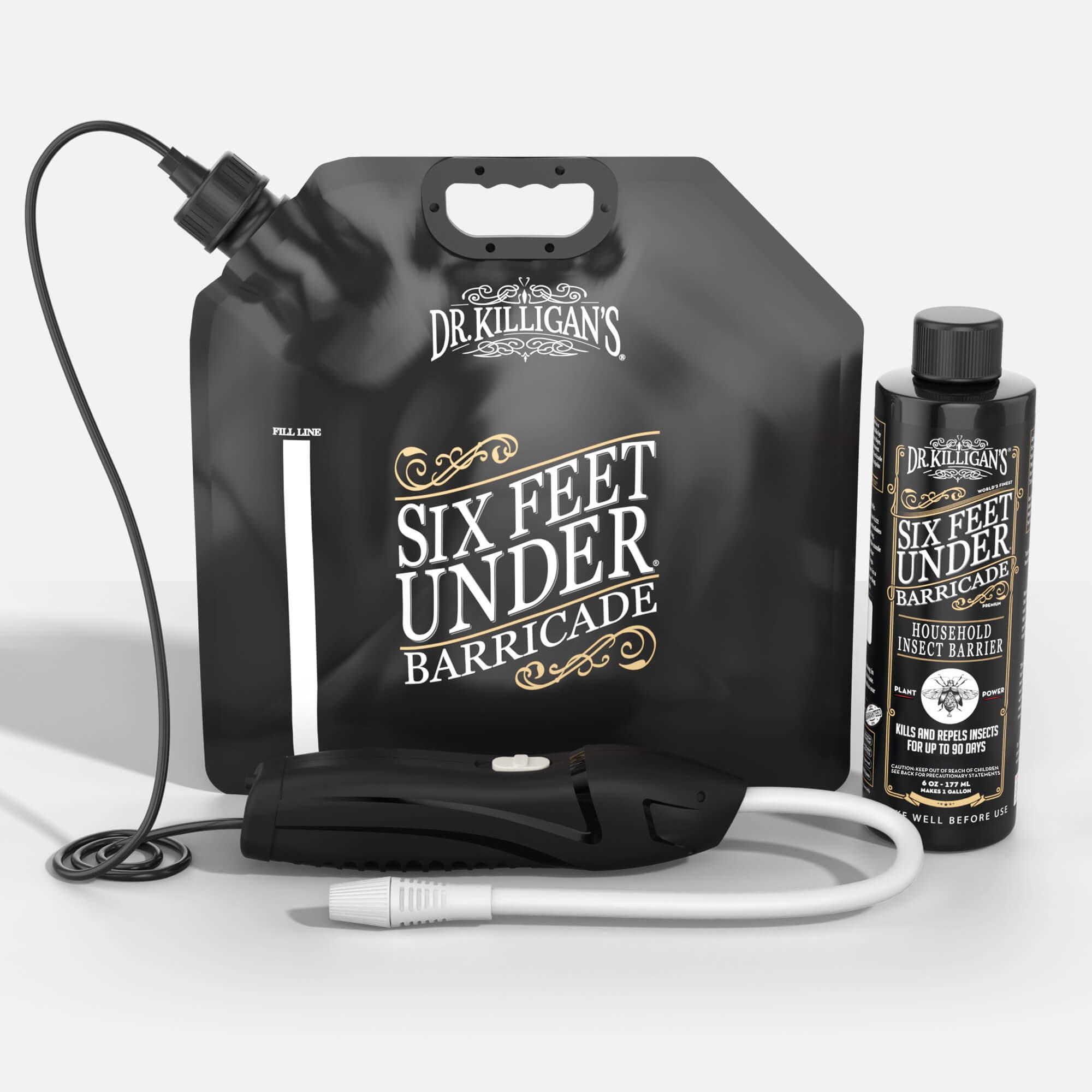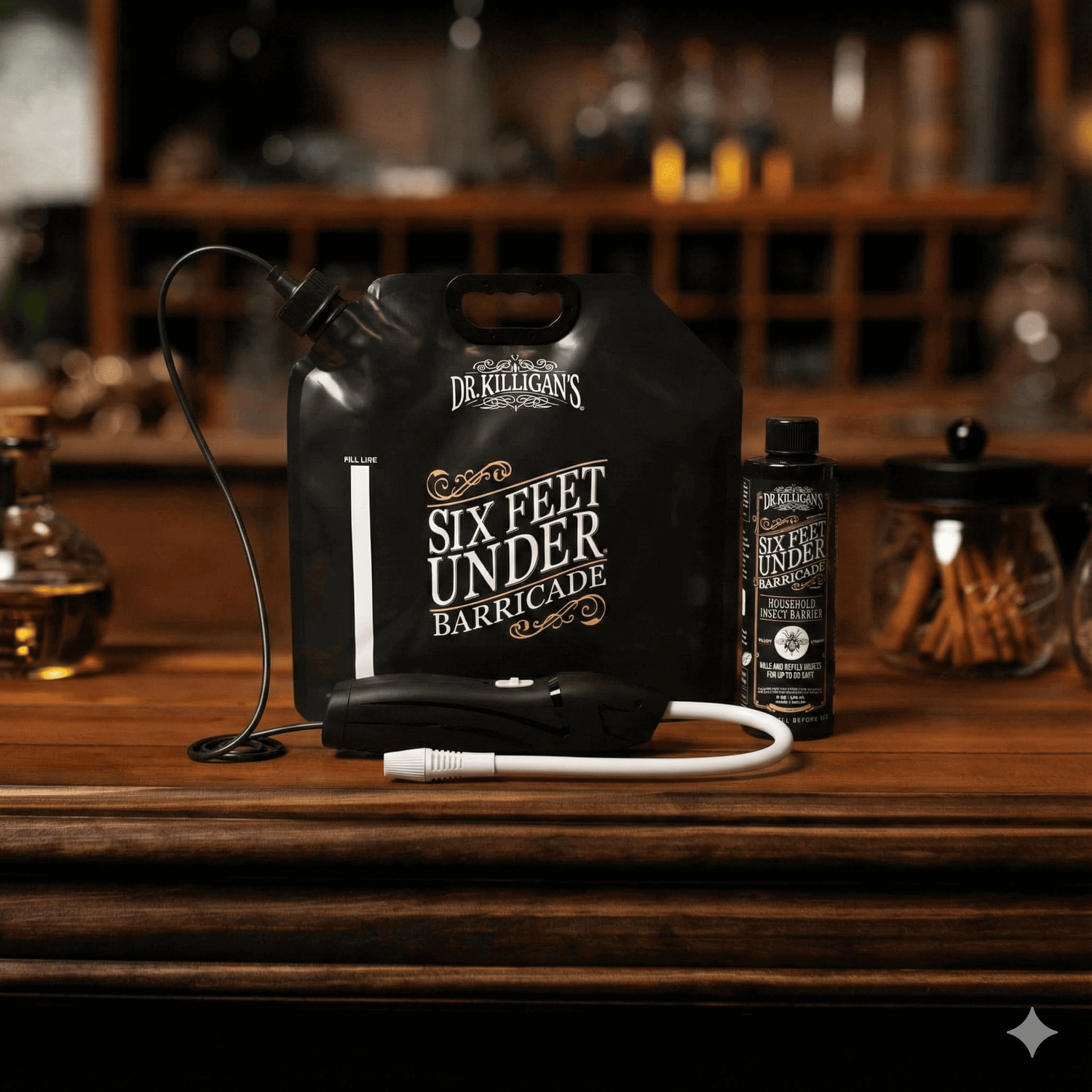Updated on July 18th, 2024
Green lacewings, with their delicate wings and shimmering bodies, are often admired for their role in controlling garden pests. However, concerns arise regarding their potential to bite humans.
Let's delve into the facts and separate myth from reality, ensuring clear understanding and peace of mind when these fascinating creatures find their way inside your home.
Anatomy of a misconception: Why lacewings don't bite
Fear of lacewing bites stems from a fundamental misunderstanding of their biology.
Unlike mosquitoes or spiders, green lacewings lack the necessary mouthparts for biting. Their elongated proboscis, resembling a slender straw, is designed solely for sipping the juices of soft-bodied insects like aphids and mites. Human flesh simply holds no interest for these refined predators.
Furthermore, reports of "lacewing bites" often stem from mistaking other insects, like gnats or mosquitos, for these gentle giants. Green lacewings pose no threat to you, your family or your pets. Their diet and lack of biting mouthparts render them entirely harmless.
Unexpected guests: Lacewings indoors

While primarily outdoor creatures, green lacewings may occasionally find their way into your home. This doesn't signify an infestation; they may be seeking shelter from the elements, pursuing prey attracted to light or exploring their surroundings.
Unlike moths or beetles drawn to food, lacewings lack the digestive capacity for human fare and don't risk contamination. In addition, their delicate wings make them unlikely to land on you.
Rest assured, their presence is temporary and entirely harmless. Their lack of interest in human meals and lack of biting equipment make them innocent occupants within your space.
Recognize the lacewing: Allies in the garden
At Dr. Killigan's, we recognize the grace and utility of green lacewings in our gardens. These ethereal guardians are not just beautiful; they're instrumental in maintaining a healthy ecosystem.
By naturally managing populations of pests like mealybugs and whiteflies, lacewings reduce the need for harsh chemical treatments. Their presence is a testament to a balanced and flourishing ecosystem, a true gift for gardeners and nature lovers.
Simple solutions: Addressing unwanted green lacewings

If lacewings occasionally flutter indoors, sparking surprise or maybe a bit of unease, Dr. Killigan offers practical solutions.
A gentle nudge, a guiding cup or a quick spray with Dr. Killigan's Six Feet Under Plant-Powered Insect Spray can address their presence effectively. This spray tackles unwanted insects while remaining safe for families and pets. Remember, Dr. Killigan prioritizes your safety, making Six Feet Under your go-to for regaining a pest-free space.
Note: Alongside managing unexpected indoor lacewing guests, it's also wise to keep an eye out for their usual prey like aphids and mites. If you notice an increase in these pests, Dr. Killigan's Dust to Dust Plant-Powered Insect Powder offers a safe and effective solution. This non-toxic powder can be applied to areas where these insects are found, disrupting their lifecycle without harm to your family or pets. While lacewings naturally control these pests outdoors, Dust to Dust is an excellent indoor ally, ensuring your home remains balanced and pest-free.
Embracing the lacewing: A sustainable approach

At Dr. Killigan's, we embrace green lacewings as vital allies in sustainable pest management. Understanding their positive impact on our environment is key. These creatures aren't just intruders; they're natural balancers in your garden.
When lacewings visit your home, see them not as pests, but as beneficial insects. Gently ushering them back outdoors preserves this harmony. Moreover, inviting lacewings into your garden with plants like alyssum or cosmos is a step towards a robust, natural pest control ecosystem. It's about coexisting with nature, not conquering it.
Dr. Killigan’s eco-friendly approach
Green lacewings, despite the myths surrounding them, are a vital part of our ecosystem and pose no threat to humans. Dr. Killigan’s approach emphasizes understanding and respecting the role of these creatures in nature. By choosing environmentally friendly solutions like Six Feet Under and Dust to Dust for unwanted indoor insects, we protect not only our homes but also contribute to a healthier ecosystem. Embracing these eco-friendly practices aligns with Dr. Killigan’s commitment to safe, effective and sustainable pest management.

















